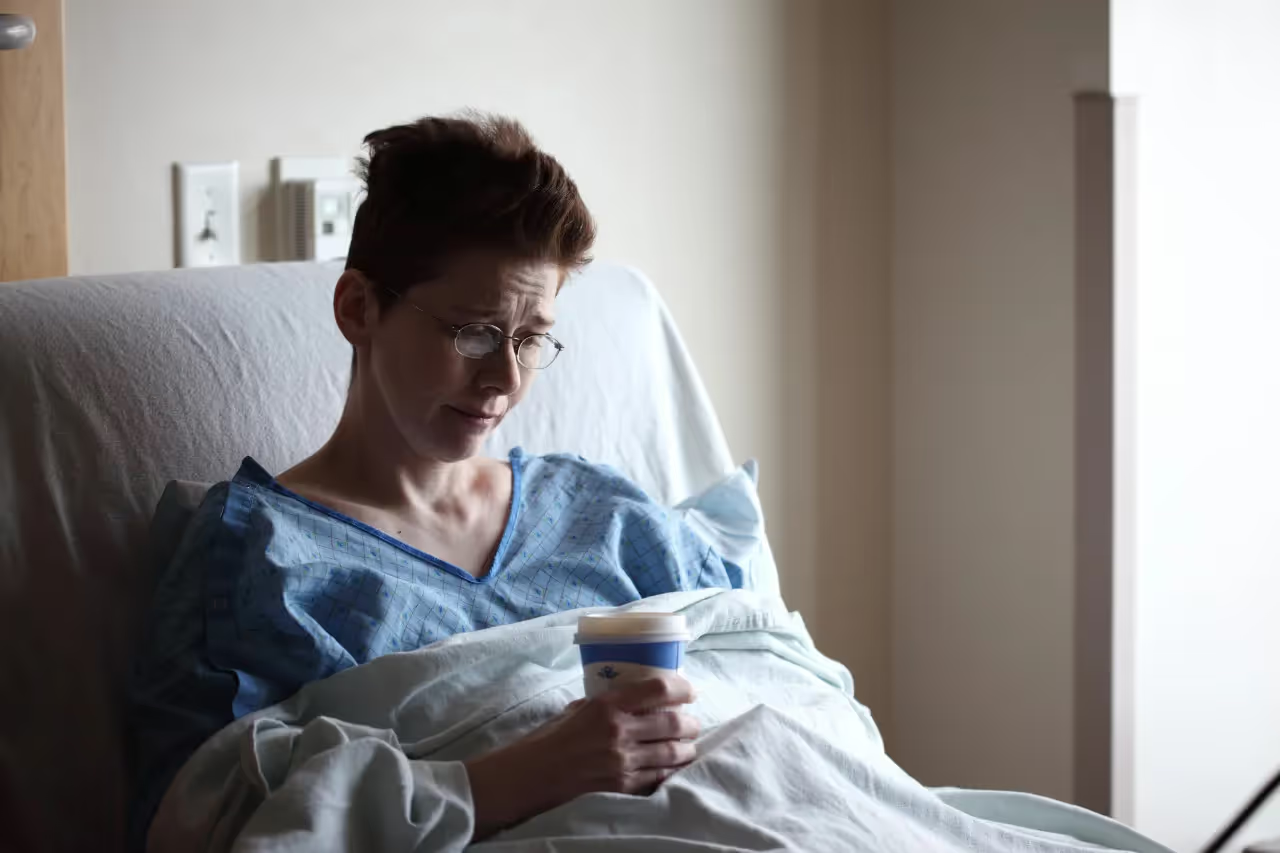Bipolar disorder is a mental condition that is characterized by severe mood swings and can significantly impact daily functioning, thereby presenting...

Bipolar disorder is a mental condition that is characterized by severe mood swings and can significantly impact daily functioning, thereby presenting challenges for those who experience it.Despite the aspects of the condition, there is a chance for a time of relief and consistency called remission in bipolar disorder.Remission is a period where the symptoms of bipolar are decreased or absent, which helps people regain control of their lives and enjoy a better quality of life.It is vital to know about bipolar disorder remission and what to expect to achieve remission.When it comes to remission, a combination of strategies andsupport for bipolar disorder is necessary.One vital thing to know about bipolar disorder remission is that remission varies among people.Individuals with bipolar disorder vary greatly from one another.Each person experiences mood swings or symptoms differently.The definition of remission will vary based on this distinction.Also, the journey to remission is marked by a strict dedication to taking your meds as prescribed.These medications are prescribed to help you manage your condition, and in the long run, they can play a part in the road to remission.Additionally, in some cases, a percentage of people assume that once they are in remission, they no longer need to closely monitor their symptoms or continue follow-up visits to their healthcare provider.This is a very wrong belief and could have a detrimental effect on any progress that has been made.Below are more details on things to know about bipolar disorder remission.
Every individual's encounter with bipolar disorder is distinct and varied.Symptoms may present themselves in different ways among people, resulting in a diverse set of difficulties and results.Thus, the frequency and intensity of manic or depressive episodes, the presence of anxiety or self-harm tendencies, etc., are all factors that can differ significantly.In addition, people may have different levels of tolerance for each symptom, and their capacity to cope with or alleviate them can vary greatly.Some people can handle hypomanic episodes or manage anxiety with meditation or some other ways, but others may have more severe symptoms or find certain behaviors unacceptable.In other words, the idea of bipolar remission is subjective and different from one individual to another.Each individual has their own standards and objectives for what they deem to be a satisfactory level of illness.

Achieving remission in bipolar disorder is possible when you incorporate a comprehensive treatment approach that includes multiple strategies.This method targets both short-term symptoms and long-term stability using multiple modes of treatment.In other to gain any form of stability with a bipolar condition, success heavily relies on medication, which is a vital element in achieving remission.There are numerous classes of medications, such as mood stabilizers, antipsychotics, and antidepressants, and some of these may be prescribed based on your needs.Thus, adhering to medication schedules to avoid relapses and maintain remission is vital.Also, Cognitive-behavioral therapy (CBT), including psychotherapy, are forms of therapy that can help bipolar people manage symptoms, identify triggers, and cope with stress, complementing medication.It helps with taking medication correctly, identifying signs of relapse early on, and improving skills for self-awareness and emotional regulation.When used alongside medication, therapy can make positive changes to one's lifestyle, which is important for achieving remission.It is always vital to prioritize certain aspects of your lifestyle, such as sticking to a consistent sleep schedule, managing stress, engaging in physical activity, and avoiding substance abuse.Making these changes can help improve stability, decrease triggers, and have a positive effect on mood regulation and overall health.
For bipolar people, medication is an essential aspect of their treatment plan.Medication can help stabilize mood changes and reduce symptoms for bipolar people, who frequently have rapid or extreme changes in mood, energy level, attention, and behavior.Taking medication can help prevent future episodes of mania or depression and lessen their intensity.In order to work well, all bipolar disorder medication should be taken as prescribed.Research suggests that a combination of medication, therapy, and consistent healthy habits is the most effective treatment approach.Lithium is a commonly prescribed medication for bipolar disorder among mood stabilizers.It is known for its effectiveness, including reducing the risk of relapse, decreasing suicidal tendencies, and stabilizing mood swings.Valproate and lamotrigine are also examples of alternative mood stabilizers that may be prescribed either alone or in combination with lithium.These medications work by controlling neurotransmitters and promoting stability during mood swings.
In some cases, people feel once they are in remission, they are no longer required to take their medication judiciously or visit their healthcare provider; this is, in fact, wrong.Remission or no remission, you always need to monitor symptoms and have frequent follow-ups with healthcare professionals.This is essential for maintaining remission from bipolar disorder.Follow-ups and close monitoring can help with any early detection of changes in mood or symptoms, and it enables prompt adjustment of treatment as necessary.You could consider using mood-tracking tools such as mood diaries or phone apps that can help you keep track of changes in mood, sleep patterns, medication adherence, and overall wellness.Family and friends can also help you keep track of symptoms and give input to the treatment team.
People often mistake remission for "end of a life living with bipolar disorder," that's inaccurate.One thing you should know about bipolar disorder remission is that the absence of symptoms may not be permanent.Remission implies a period of stability, but it does not necessarily ensure the complete elimination of symptoms.During this phase, it's normal for people to have occasional mild mood changes or lingering symptoms.It is essential to note that these symptoms should not have a major impact on your ability to carry out daily activities.Even after you have achieved remission, consider working closely with your healthcare providers to create a plan for preventing relapse.
While bipolar disorder poses its challenges, there is hope.With the right treatment, self-care practices, and support for bipolar disorder, people can lead fulfilling lives and work towards achieving and sustaining remissionSome vital things you should know about bipolar disorder remission include: bipolar disorder remission varies among individuals; a combination of treatments can achieve remission; medications are crucial for achieving and maintaining remission; close monitoring and regular follow-ups are important during remission; and remission doesn't guarantee the permanent absence of symptoms.
https://www.psychiatrictimes.com/view/bipolar-disorder-defining-remission-and-selecting-treatment
https://pubmed.ncbi.nlm.nih.gov/12720476/
https://www.healthline.com/health/bipolar/partial-bipolar#treatment
Living with bipolar disorder can feel like riding a roller coaster you didn’t exactly sign up for—episodes of deep depression on one end and bursts of high energy or euphoria on the other. Everyone’s experience looks a little different, and at Overcomers Counseling, we recognize that your story deserves to be understood on its own terms.
There isn’t one single cause of bipolar disorder—it’s usually a blend of genetics, brain chemistry, and life experiences like stress or trauma. Think of it as a complex puzzle with several interconnected pieces. When you’re ready to make sense of those pieces, Overcomers Counseling is here to help you put the picture together.
Supporting someone with bipolar disorder starts with compassion, patience, and a solid understanding of what they’re navigating. Offer steady emotional support, encourage them to stay connected to treatment, and avoid taking their symptoms personally. And remember, caring for yourself matters too. Overcomers Counseling can help guide both you and your loved one through these ups and downs.
Absolutely. Bipolar disorder may be a lifelong companion, but with consistent treatment and support—like the kind offered at Overcomers Counseling—you can build a life that feels steady, healthy, and genuinely yours. Think of it like learning to drive on a windy mountain road: tricky at first, but totally manageable with the right guidance.
Five common signs of bipolar disorder include dramatic shifts in mood, energy, and activity levels. This often shows up as episodes of mania—high energy, excitement, or irritability—and episodes of depression marked by sadness or hopelessness. Other signs may include disrupted sleep, racing thoughts, and impulsive or risky decisions. If these sound familiar, Overcomers Counseling can help you sort through the noise and find clarity.